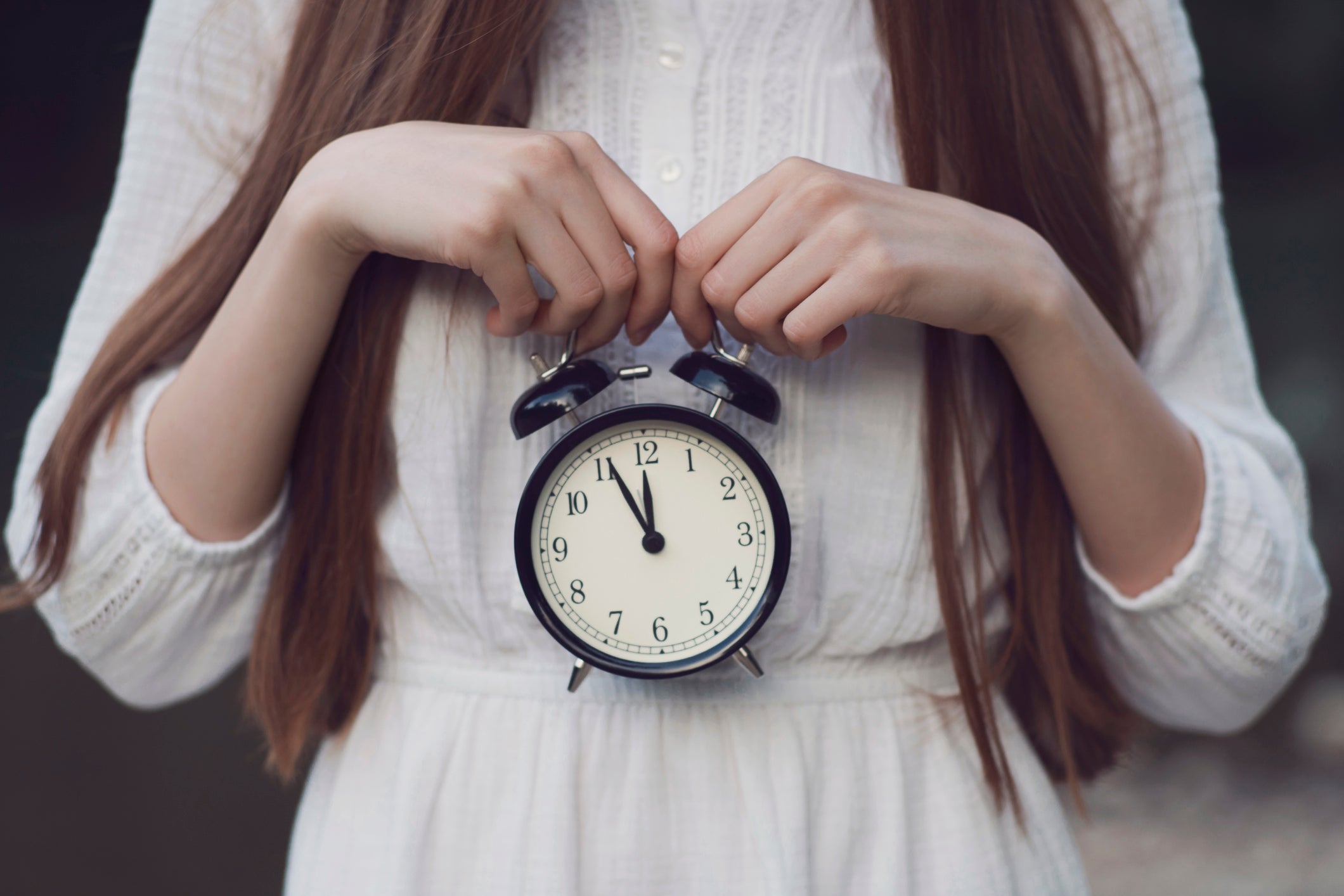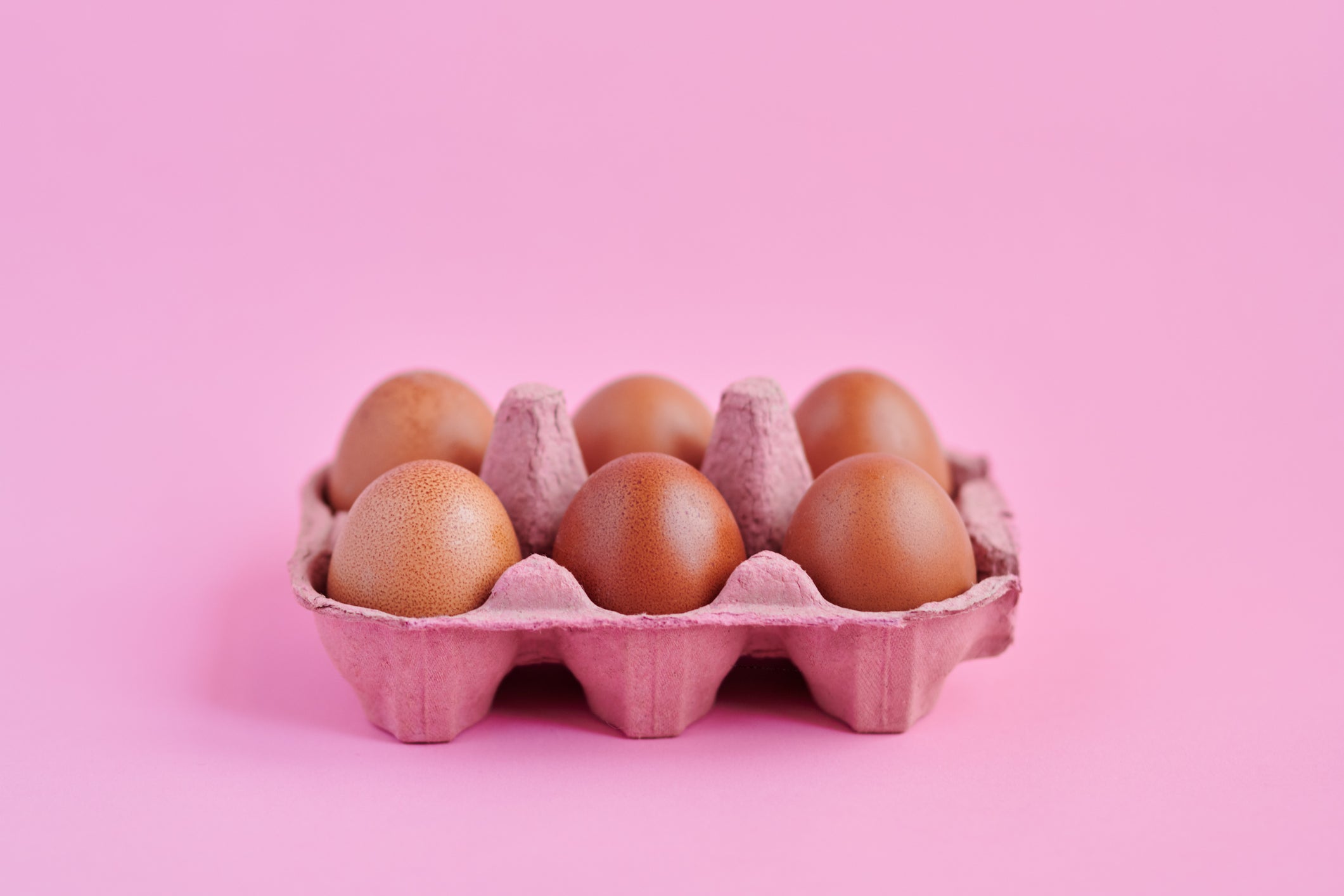The Independent's journalism is supported by our readers. When you purchase through links on our site, we may earn commission.
Pregnant pause: How the pandemic dashed hopes of starting families and left fertility in limbo
A year since the World Health Organisation declared Covid-19 a pandemic, Kate Townshend speaks to women for whom plans for a family were stopped in their tracks last March - and reflects on her own halted IVF journey


Your support helps us to tell the story
From reproductive rights to climate change to Big Tech, The Independent is on the ground when the story is developing. Whether it's investigating the financials of Elon Musk's pro-Trump PAC or producing our latest documentary, 'The A Word', which shines a light on the American women fighting for reproductive rights, we know how important it is to parse out the facts from the messaging.
At such a critical moment in US history, we need reporters on the ground. Your donation allows us to keep sending journalists to speak to both sides of the story.
The Independent is trusted by Americans across the entire political spectrum. And unlike many other quality news outlets, we choose not to lock Americans out of our reporting and analysis with paywalls. We believe quality journalism should be available to everyone, paid for by those who can afford it.
Your support makes all the difference.When I look back on the start of the pandemic, I want to superimpose a moment when I realised what it meant for our attempts to have a baby. I want to tell you about a tearful phone call, or a particular news conference watched with silent dread.
The truth though is that, like so much about the past twelve months, where the enormity of what is happening is often too huge to grasp in anything other than cumulative, stomach lurching flashes, I realised in pieces that it might mean our IVF treatments would be delayed.
From our initial anxieties in early 2020 (should we be going ahead with a global pandemic on the horizon?) via the first lockdown announcement on March 23rd (I wonder if the clinic will even stay open?) to the definitive answer of April 15th when The Human Fertilisation and Embryology Authority stopped all NHS and private clinics from providing treatment, it was a slow dawning realisation that the pandemic would press pause on our lives in more ways than one.
When you’re aware that you’re 39 and you need the specialist help of IVF in the first place, when every month your egg quality is declining and your insides have been ravaged by years of endometriosis, any delay in getting on and giving yourself the best possible chances can be agonising - like standing frozen in place while a giant clock ticks down to zero. But I’m acutely aware that it could have been worse - my husband and I were at the ‘paperwork’ stage of the process while some couples who had already soldiered through part of a cycle (on a cocktail of drugs and daily injections) were forced to simply abandon all of that progress.
When the community and support group Fertility Help Hub surveyed more than 100 women across the UK who’d had fertility treatment delayed or cancelled due to the pandemic, they found nearly half feared Covid delays might put an end to their hopes of parenthood for good. And all felt mentally traumatised by the situation.
Of course, it’s not just those of us facing IVF for whom Covid has been an odd sort of limbo - the pandemic has stolen precious time from many of those wanting to start or expand their families - for a variety of different reasons.
Kerry Bannigan, originally from the UK, was here on a visit from her home in America when Covid hit, and she’s been in the UK ever since. She and her partner had been hoping to begin trying for a second child at the start of last year - a decision already tangled with some anxieties because of previous miscarriages and health concerns prior to conceiving her now four year old son.
For Kerry, the pandemic has made this choice untenable: “Mentally, I’m just not sure I could handle the experience again in these circumstances,” she says, citing concerns around lone appointments (in many cases partners have not been allowed to accompany pregnant women to routine scans and other check-ups), hospitals as potential Covid infection sites and most of all uncertainty around what might happen next as key factors in her decision. “I’m 39 this year and I’m concerned for the period of time that we will continue to lose in living the lives we wish,” she says.
Half of women in a recent survey feared Covid delays might put an end to their hopes of parenthood for good
Dr Ellie Rayner, Obstetrician and founder of The Maternity Collective, an organisation providing antenatal and birth preparation classes, understands this apprehension. “There has been huge publicity over some of the difficulties faced by pregnant women during the Covid-19 pandemic with many concerned over their or their baby’s health or their pregnancy and childbirth choices being affected, with limitations placed on the wider support available from loved ones.”
But Dr Rayner also acknowledges the potential costs for women who choose to delay: “Your chance of conception decreases over time,” she explains. “So it’s important to balance the pros and cons of the current situation and your own personal circumstances and make a decision that is right for you.”
For some women, the frustration of Covid is that it has stopped them in their tracks even further back on the path towards having a family. Sarah is 35, and not so long ago she was ready to get married and have children with her partner of many years when the relationship unexpectedly fell apart. Her former partner is now a father and while Sarah explains she’s happy for him, this has brought her own desire for children into sharper relief.
“I’ve always felt like a mother, I just don’t have children yet,” she says, cataloguing the pain inherent in watching friend after friend fall pregnant.
Sarah re-entered the world of dating in January 2020 keen to find a relationship and move forward towards her dream but then lockdown hit and her hopes for the future were once more upended. “Where would we go exactly? How would I meet them face to face?” she points out.

So instead, she’s looking to safeguard her future fertility and buy herself back some of the time that Covid has stolen, by paying to freeze her eggs. “I feel I have to do it now. Not next year, not in five years… now, during Covid,” she says.
Like Sarah, thirty-six-year-old ecologist Leah Tardivel has always wanted to be a parent. She decided to have a child alone, potentially with the help of sperm donation, and started talking to doctors about being referred to fertility services two years ago. Since then, she’s been diagnosed with Polycystic Ovary Syndrome (PCOS) and lost weight on her journey - but once again the pandemic has left her in a kind of stasis.
“I’m reluctant to press ahead for a variety of reasons, including not wanting to use NHS resources at the moment,” she says. “I will also be avoiding pregnancy until I know my family can visit and I can visit my family once the baby is born. As much as I want a child, I think I would find having a newborn in the current situation far too lonely to cope with.”
I was finding it really hard when people talked about being stuck at home with their children
In the meantime, Leah is considering adoption, though she acknowledges this also brings challenges in a world where Covid still dominates - and there are no guarantees with any option. “The chances of getting pregnant get smaller all the time and I hate the idea of waiting longer. Early in lockdown I was finding it really hard when people talked about being stuck at home with their children.”
It is, perhaps, too early to measure the impact of choices like these - along with thousands of cancelled IVF cycles - on the UK’s birth rate overall. (‘Choices’ seems a cruel word in many ways for situations so fraught with pain.) After all, those babies conceived between March and December of 2020, will only be starting to be born around now, and the Office for National Statistics has not yet released figures for the final quarter of 2020.
However, the conversation seems to be moving on from consideration of a possible Covid baby boom to one of a baby bust. NHS trust data on women seeking scans certainly disproves the idea of any lockdown induced surge and anecdotally at least, many people have put their family plans on hold. Which of course will leave many would-be parents wondering how long to press the pause button for.
Social psychologist and chartered member of the British Psychological Society Dr Sandra Wheatley thinks that uncertainty around Covid may mean that decisions around family planning are worth regular revisiting: “It’s important to acknowledge that you might feel differently now to the start of the pandemic - it’s ok to change your mind. Life is a continually evolving set of circumstances that we have to respond to.”
And for those whose pause was externally enforced? “The anger and grief you’re likely to feel is a very difficult tap to turn off and learning to turn that into something positive is hard,” says Dr Wheatley. “Speaking to other people and realising that you aren’t alone can provide solace and comfort.”
My own postponed IVF cycle went ahead, finally, last September, after fertility treatments were allowed to resume on the 11th of May. It may seem like a reasonably short delay, but every month matters with IVF and many clinics faced a backlog of patients. My treatment was unsuccessful, and now I’m 40, there is no further NHS funding, and no allowances made for the time stolen by the virus.
It seems fair to say that we’ll all be counting the costs of Covid far beyond the end of this latest lockdown.


Join our commenting forum
Join thought-provoking conversations, follow other Independent readers and see their replies
Comments